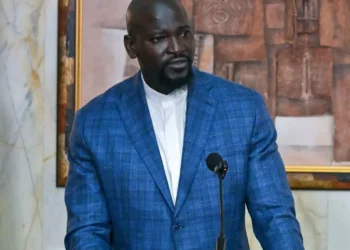Gospel music has long been vital to Ghana’s cultural and spiritual landscape. It serves as a means of worship, expression, and community bonding.
However, there has been growing criticism regarding the quality and depth of many gospel songs produced in the country in recent years. Some argue that a significant number of these songs lack meaningful content and fail to resonate with the spiritual needs of the listeners.
Gospel music in Ghana has evolved significantly over the decades, influenced by various musical styles, cultural shifts, and social changes. From traditional hymns and choir music to contemporary gospel and urban gospel, the genre has diversified immensely.
Notable artists like Amakye Dede, Joe Mettle, and Diana Hamilton have substantially contributed to the genre, blending traditional Ghanaian sounds with modern musical elements.
While many gospel songs continue to inspire and uplift, there is a growing sentiment among listeners that a substantial number of recent releases lack depth. Critics argue that many of these songs focus on repetitive phrases, catchy hooks, and superficial themes rather than conveying profound spiritual messages.
Ghanaian media personality and entertainment pundit, Nana Romeo has claimed that the majority of gospel songs being produced in the country lack meaning.
He said this in reaction to critics who questioned why Ghanaian Highlife musician Kwabena Kwabena had released a gospel song.
“You will be surprised that on the day of judgment, those who do not look righteous would rather get into heaven than those who do. People are wondering why Kwabena Kwabena, who sings Highlife music, is composing a gospel song but I can tell you that Kwabena Kwabena’s recent gospel song makes more sense than a lot of gospel songs in the country currently.”
Nana Romeo
He added, “A lot of gospel songs in this Ghana are meaningless, there is no sense in them, but because the people who composed them identify as gospel musicians, we allow them.”
The influence of secular music trends on gospel artists dilutes the spiritual essence of gospel songs. As artists seek to appeal to broader audiences, they adopt musical styles and themes that are more aligned with popular culture than with traditional gospel messages.
The perception that many gospel songs lack meaning has several implications for the gospel music industry in Ghana.
As listeners become increasingly critical of the content of gospel music, there is a risk of disengagement from the genre. If audiences feel that songs do not resonate with their spiritual needs, they turn to other forms of music or worship that they find more fulfilling.
The focus on catchy tunes and commercial success leads to an oversaturation of the market with subpar music. This stifles creativity and innovation within the genre, as artists feel pressured to conform to prevailing trends rather than explore new ideas and themes.
The criticism surrounding the lack of meaningful content in gospel music has sparked a call for authenticity among artists. Many listeners are seeking songs that reflect genuine faith experiences, struggles, and triumphs. This demand catalyzes for artists to produce more thoughtful and impactful music.
Paths Forward for Artists and Audiences

Gospel artists benefit from investing time in crafting lyrics that explore deeper spiritual themes. Collaborating with theologians, pastors, and seasoned songwriters helps create songs that resonate with the faith community while maintaining artistic integrity.
Artists should actively engage with their audiences to understand their needs and preferences. Feedback provides valuable insights into what listeners find meaningful and relevant, guiding artists in their creative processes.
The gospel music scene in Ghana is rich with diverse voices and styles. By promoting a variety of artists and genres, the industry fosters a more inclusive environment that encourages innovation and authenticity.
While commercial success is important, artists should strive to balance it with a commitment to meaningful content. This approach leads to a more sustainable career while also fulfilling the spiritual needs of their audience.
While it is true that some gospel songs in Ghana have been criticized for lacking depth and meaning, it is essential to recognize the complexity of the genre and the various factors that contribute to this perception.
The gospel music industry is at a crossroads, with the potential for growth and renewal. By prioritizing authenticity, engaging with audiences, and focusing on thoughtful composition, artists revitalize the genre and ensure that gospel music remains a powerful and meaningful expression of faith in Ghana.
Ultimately, the challenge lies in striking a balance between artistic expression and spiritual relevance, creating music that uplifts and inspires listeners on their faith journeys.
READ ALSO: Lands Commission Clarifies Allegations Regarding 5th Circular Road Property



















